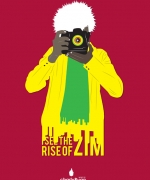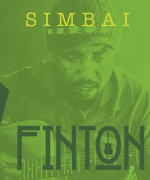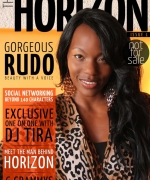The JETLAG Inyathuko Travelogue series - Sharing experiences
Njelele Art Station is an eclectic, Bohemian rhapsody of sorts neatly tucked away from the hustle and bustle of central Harare city’s downtown melee. It’s right at the head of one of the city’s busiest thoroughfares, Kaguvi Street and Samora Machel Avenue on the fringes of the central business district. The spiritual symbolism in the names of Njelele and Kaguvi is not lost on those visiting this modest galleria. Historically, Kaguvi was a revered Shona spirit medium whereas the Njelele shrine remains a sanctuary of cultural significance for rainmaking ceremonies located in Bulawayo’s Matobo National Park.
It’s eventide in downtown Harare and as my eyes adjust to the modest façade in front of me, a series of images in monochrome suddenly springs up. The Njelele entrance connects to a small archway, separating a narrow passage from a courtyard that doubles up as a stage where some familiar ‘arty’ types are gathered for season 3 of the Jetlag Inyathuko Travelogue series. Starting in Durban back in 2016, the event features contemporary Speakers on their current projects and world travels and enters its third edition in Harare. It is the brainchild of Durban based South African artist Russel Hlongwane who says he draws inspiration from the interesting perspectives from which artists and creatives observe and engage with cities.
Respected Author, Producer/ Lecturer Joyce Jenje Makwenda reprised her 2017 research residency experience in Detroit with Motown Magic, an exchange programme with Njelele Art station and the Zimbabwe Cultural Centre of Detroit. Jenje-Makwenda who spent time in Detroit at the Motown Museum amongst other places, recounted the intersections between African American music and culture with Zimbabwe and the extent to which the jazz genre was influenced by the latter. In her words, the exchange program ‘reconnected’ her to the Motown music idols of her teenage years whom she grew up listening to in early 70s Mbare - Harare.
Walking the audience back in time, Jenje - Makwenda’s voice in the present echoed the rich cultural heritage that locates Zimbabwe at the centre of black American music as some famous musical tracks borrowed heavily from local cultural content. The influences of local sounds to the music of the 50s to 70s legends like Louis ‘Satchmo’ Armstrong were a catalogue of memories that not only show the close ties and collaborative efforts that black American musicians enjoyed with their Zimbabwean peers. ‘It highlights an urgent need amongst Zimbabwe’s current musicians to reconnect the umbilical cord that connects us to Afro America through new technology and social media to explore areas of collaboration’ says Jenje -Makwenda.
Musician Joshua Chiundiza (a.k.a The Legend of Josh) put the connection of the past with the present in perspective through reflections on his Johannesburg Fak'ugesi African Digital Innovation Festival experience. Josh’s imaginative display explores the role that vernacular and traditional cultures have in digital culture and practices. Exploring music through the prism of the Mbira instrument, he transmitted the traditional sound through modern media to test the appetite for audiences for this music genre. To illustrate this he used an installation featuring a cell phone with Mbira ringtones that subjects listened to before hearing a Sangoma’s voice at the end delivering some contrived ‘prophetic message’ on their lives. It’s a tongue in cheek play on how the new generation and by extension ‘old’ cultural practices can be ‘reinvented’ using a medium that appeals to youths inundated with mind numbing western propaganda culture and music which speaks into how technology can be an enabler of African cultural renaissance.
Zimbabwean Blogger and Digital Storyteller, Stephanie Kapfunde echoed similar sentiments through her Connect South / UK Stories project experience where Southern African storytellers visited UK based peers in metropolitan London. Kapfunde says she was able to reimagine the possibilities around public space use and how art can be a catalyst for personal expression and shape the identity of a community. Public spaces like the London subway and its quaint buildings on the upper ground catalogued its people’s daily experiences which they used to express their innermost desires and aspirations.
Also in London was Harare break-dancer - Blessing Fire, recently at the Southbank Centre Unlimited biennial festival. The expo which shines a light on the extraordinary work by disabled artists, advocates for greater access to public spaces and services for people with disabilities. The festival was a celebration of the human rights of disabled artists in general and encouraged attendees to mobilize for similar initiatives in their home countries. Whilst finding inspiration in the unfettered access of his peers, Blessing lamented the laggard pace at which Zimbabwe was moving on disability issues which he noted were a national problem.
However, the cultural collaborations notwithstanding, there is a gloomy side to foreign travel that was a recurring motif amongst the younger artists like Valerie Sithole from the National Arts Gallery of Zimbabwe. Sithole, who was fascinated by the food and culture scene in Venice at first but found the going tough due to the high cost of living. The language barrier was also an issue and says although it got better as her residency progressed, she became homesick craving for familiar spaces, faces and foods. That plus the cultural differences present an enduring problem that can easily lead to depression in a foreign country, says award winning photographer Nancy Mteki who was on a four-month Autonomous Cultural Centre (ACC) Valerie Weimar African Artistes In Residency Programme in Weimar, Germany.
There is a side of living abroad that scholarship and awardees never seem to highlight in fear of ‘biting the hand that feeds them’ yet it is a reality that has led many to severe melancholy. In the case of Mteki, she decried the spectre of racism which is still alive and well in Europe and took the audience on a rollercoaster journey of how Zimbabweans and by extension Africans abroad in general live in a social media bubble portraying a jet set lifestyle that seldom reflects the inner turmoil they experience abroad away from family and friends. For some artists, it’s an ambivalent and bittersweet experience of endless opportunity, but can often leave one isolated and despondent in a foreign land. It didn’t help that Nancy’s father, Richard had led the way years earlier as one’s experience is always an individual struggle. Initiatives like the Jetlag travelogue series are a window into other Africans’ experiences. The spectre of globalization and massive human movement demands it and the shared experiences add to our already rich cultural heritage as a people.




